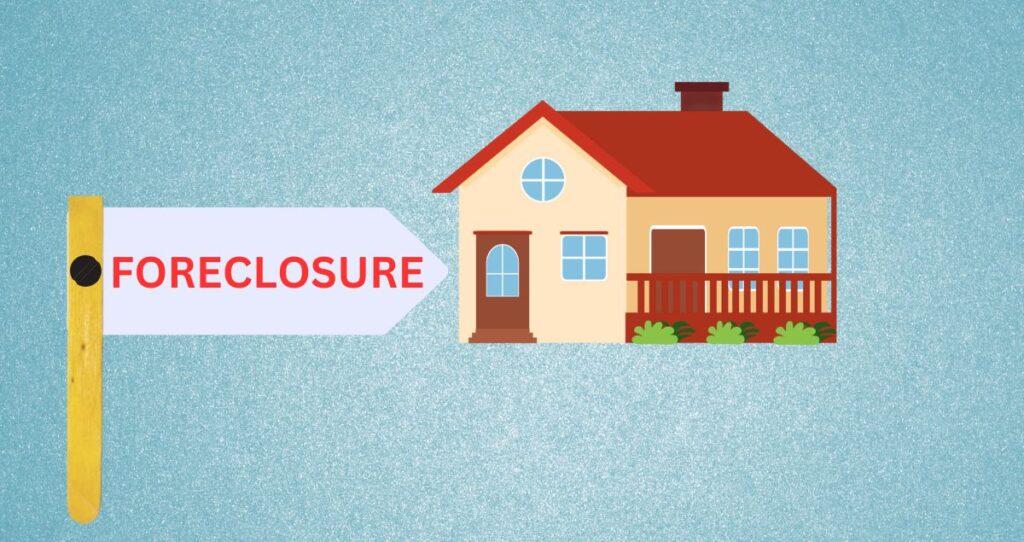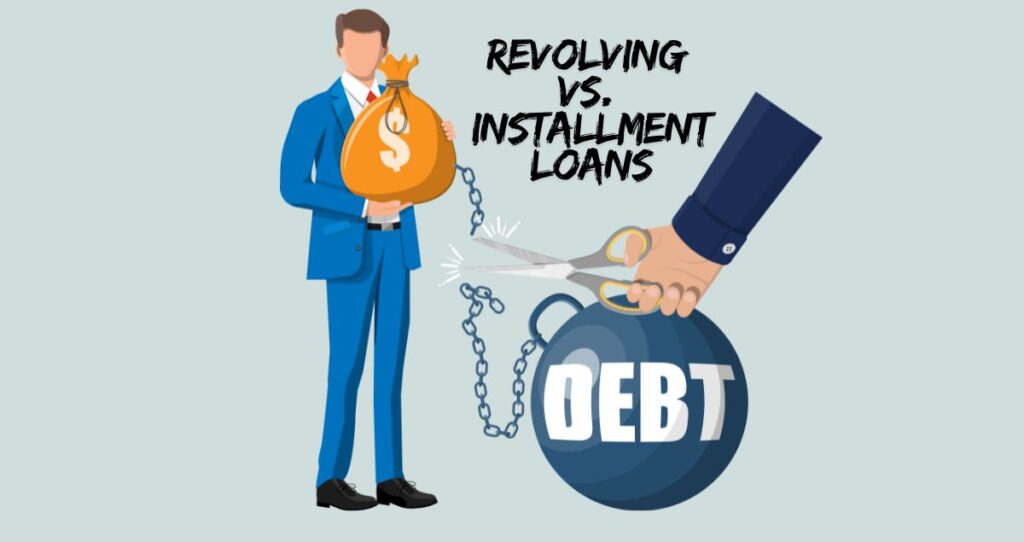How does foreclosure affect your credit score? Facing foreclosure can be an overwhelming and stressful experience, especially when it comes to understanding how a foreclosure will impact your credit. Having a foreclosure on your credit report will significantly drop your credit score and severely damage your credit. A foreclosure will remain on your credit report for 7 years and can drop your credit score by as much as 160 points. This mark on your credit report will make it difficult and often impossible to get new credit.
You might also find it difficult to find new housing and employment due to the foreclosure and the resulting damage to your credit score. In addition, The interest you pay on new loans and credit accounts such as credit cards will be higher due to the foreclosure, making it harder for you to make ends meet.
But it doesn’t have to be all doom and gloom. In this article, you’ll learn the ins and outs of how foreclosure affects your credit and what you can do to protect your financial future. We’ll cover the impact that a foreclosure has on your credit, how to remove foreclosure from your credit reports, and more importantly, the steps you can take to repair your credit once a foreclosure has occurred.
What is foreclosure?
A foreclosure is a process in which the lender legally takes property from a borrower in an attempt to recover the remaining balance on the mortgage. This happens when the homeowner can no longer afford to make mortgage payments.
As part of the mortgage contract, a borrower is required to make regular monthly payments until the house is fully paid off. There are times when the borrower fails to make their monthly payments which put their mortgages in default. Being in default means that you have violated the terms of your mortgage by missing payments.
Most lenders put your mortgage in default 90 days after your payments are delinquent. That is if you cannot pay your mortgage and did not negotiate with your lender for 90 days, an official default notice will be issued by the bank. In some cases, your loan will be in default before the 90 days mark.
Your mortgage servicer will try to contact you regarding your payments and what you have to do to keep your home. If you continue to not take action, a foreclosure will be initiated after 120 days of inactivity. The foreclosure processes defer from one state to another. But, the foreclosure will involve a court in judicial states. For non-judicial states, lenders foreclose on homes without using courts.
After the foreclosure is finalized, the property will be sold usually in an auction.
How does a foreclosure affect your credit?
A foreclosure is one of many negative items that can appear on your credit reports. The effect of foreclosure on your credit is so dramatic that once reported on your credit reports, your credit score can drop as many as 160 points. The following are ways a foreclosure affects your credit.
- A foreclosure will drop your credit score. A foreclosure will decrease your credit score by more than 100 points. Depending on your credit score, you could lose as many as 160 points.
- A foreclosure will stay on your credit report for 7 years. The foreclosure will remain on your credit report for seven years. During this time, many lenders might deny you credit due to this negative item on your credit report. The effect of foreclosure on your credit score will fade away over time.
- There is a waiting period before you can take out another mortgage. After a foreclosure, you will wait 4 years or more before you can qualify for another mortgage. Some loans such as FHA loans might approve your application in as little as 3 years.
- A foreclosure will increase your interest rate. If you do manage to obtain financing, you may face higher interest rates due to the foreclosure on your credit report.
- It can be hard to qualify for housing. Since foreclosure will significantly drop your credit score, some landlords will deny your renter’s application due to bad credit.
- Some businesses will not hire you. Foreclosure is so bad that some businesses might not hire you for certain jobs due to bad credit and a bad credit score.
How long does a foreclosure affect your credit?
A foreclosure will remain on your credit report for seven years from the date the foreclosure is settled. This means that during the 7-year period, it will have an impact on your credit score and can make it more difficult for you to qualify for loans.
The good news is that the effect of foreclosure on your credit will fade away over time. That is some lenders might agree to give you loans after waiting for some time. Depending on the type of loan you want and the lender, the waiting period will vary. By default, you will be required to wait at least 2 years after a foreclosure to apply for a new loan.
According to Experian, the following are waiting periods for new loans after foreclosures.
- VA Loans. Usually, you are required to wait for two years before you can qualify for a VA loan after foreclosure.
- Conventional loans. Since conventional loans are backed by Fannie Mae and Freddie Mac, the waiting period after a foreclosure follows their guidelines. After foreclosure, you will need to wait for 7 years before you can qualify for loans backed by these two government institutions.
- FHA Loans. By default, FHA loans have a mandatory 3 years waiting period. But, if you have proof that the foreclosure was due to conditions outside of your control, the waiting period might be reduced.
How does foreclosure affect your credit score?
Having a foreclosure on your credit report will negatively affect your credit score. A foreclosure will lower your credit score by more than 100 points. If you have an excellent credit score, foreclosure can drop your score by as many as 160 points. The higher your credit score, the more points you will lose from foreclosure.
Negative items on your credit report will also impact the number of points your credit score will drop from foreclosure. Before the foreclosure is reported on your credit report or even lowers your credit score, other negative items would have significantly dropped your score. That is a late payment will first show up on your credit reports which will lower your credit score by more than 100 points.
During the 120 days, your account will be delinquent and the longer your payments stay delinquent, the further your credit score will drop. By the time a foreclosure is reported on your credit report, your score could have dropped by hundreds of points.
When do you get into foreclosure?
Missing a payment does not get you into foreclosure right away. It will take many months of delinquent payments before your mortgage gets into foreclosure. The Consumer Financial Protection Bureau(CFPB) requires lenders to initiate the foreclosure process only when borrowers are at least 120 days past due on their payments.
The foreclosure timeline
Before the 120 days when the foreclosure can be initiated, your payments will have different stages. First, most lenders give you a 10 to 15 grace period to make your payments. If your payment is not made within 30 days, it might be marked as delinquent and your lender will report it to major credit reporting agencies (Equifax, TransUnion, and Experian). Once a late payment is reported on your credit report, your credit score will drop as much as 180 points depending on your credit score.
After 36 days of delinquency, the lender will reach out regarding your payments. Within 45 days, your lender will send you a written notice regarding your defaulted mortgage, according to the balance. The notice will also have information on actions to be taken such as repayment plan, loss mitigation, etc., to avoid foreclosure.
If you have not taken action by 120 days, your lender will initiate the foreclosure process. Once the foreclosure lawsuit has been filed against you, the court will make a decision either in favor of your lender or in your favor. The court might not be involved depending on whether you are in a judicial or nonjudicial foreclosure state. The property will then be sold in an auction.
How to avoid foreclosure?
An effective way to avoid foreclosure is to purchase a home that is within your budget. There are also times when financial setbacks arise no matter how much you follow the rules. If you are in a situation where it is becoming harder to afford your monthly payments, talk to your mortgage servicer. Depending on your unique situation, you might qualify for a loan modification, a different payment plan, or a waiver of penalties and fees. You might also qualify for mortgage reinstatement.
Another good strategy you can use to avoid foreclosure is to refinance your mortgage.
If you can no longer afford payments, the best option is to sell the property in a traditional sale. For those who have missed this opportunity, you can still use a short sale or a deed-in-lieu of foreclosure. Keep in mind that a deed-in-lieu of foreclosure will affect your credit but not as badly as a short sale or foreclosure. Unlike foreclosure and short sale which will stay on your credit report for 7 years, a deed-in-lieu of foreclosure will only stay on your report for 4 years.
How long does it take to build credit after foreclosure?
Even if the foreclosure will affect your credit for 7 years, its effect on your credit score will fade over time. As long as you make your payments on time and use the remaining accounts responsibly, you should rebuild your credit and regain the points you lost way before the 7-year mark. But, you should expect the process to take many months even years to fully recover from foreclosure.
You can also apply for another account such as a credit card (if you don’t have many accounts) to help you rebuild your credit much faster.
To build credit after foreclosure, always avoid borrowing excessively, pay your bills on time, watch your credit utilization, keep your credit accounts open, and clean up your credit reports. You can also become an unauthorized user of a credit card account to boost your credit score.
Can a foreclosure be removed from a credit report?
By default, the foreclosure will remain on your credit report for 7 years. After 7 years on your credit report, the foreclosure should automatically fall off your credit report and it will no longer affect your credit. If a foreclosure does not fall off your credit reports, you can simply dispute it to major bureaus that reported it.
In the event a foreclosure was accurately reported on your credit report, it might be difficult to remove it from your credit report. The good news is that there are times when you can successfully have a foreclosure removed from your credit report.
According to Lexington Law, the following are Some of the reasons to dispute a foreclosure in your credit reports.
- Inaccurate balance
- Wrong names
- Wrong dates
- Outdated accounts
- Invalid account number
- The borrower has voluntary dismissal
- Your lender went bankrupt, and
- Lack of records.
All this information can reinforce your case and ease the process of removing foreclosure from your credit report.
When does foreclosure go on your credit report?
A foreclosure goes on your credit reports when the lender reports it to three major credit bureaus. Since a foreclosure will be initiated at least after 120 days of missing mortgage payments, the foreclosure will show on your credit report within one to two months from the foreclosure initiation. This is because it takes time for lenders to report information to major credit agencies.
How to remove foreclosure from your credit report?
Assuming that you have found reasons to dispute foreclosure in your credit report, the process of removing a foreclosure is simple. All you have to do is to submit a formal dispute letter to each credit reporting agency that reported the foreclosure. There are three major credit agencies which are TransUnion, Experian, and Equifax.
Your dispute letter should include all information regarding the dispute together with evidence. As your credit report will have many accounts, it is critical to highlight the account in question and provide the number of the account you are disputing. You can either send your letter in the mail or dispute foreclosure online. Credit bureaus will then investigate your case and respond to you within 30 days.
Related: How to dispute an error on your credit report?
Can I buy a home with foreclosure on my credit?
One of the biggest concerns for many consumers who undergo foreclosure is their ability to purchase another home after a foreclosure. Yes, the foreclosure will look bad on your credit profile, but you don’t need to wait for 7 years to apply for another loan.
Depending on the loan and your unique situation, you will be required to wait between 3-7 years before you can qualify for another mortgage.
Can you give the house back to the bank to avoid foreclosure?
The foreclosure process is costly for lenders and borrowers. It also takes a long time to finalize the whole foreclosure process. So, most lenders might be willing to consider alternatives instead of undergoing foreclosure proceedings.
One way to avoid foreclosure is to voluntarily turn over the ownership of the property to your lender. This process is known as a deed-in-lieu of foreclosure. According to the Consumer Financial Protection Bureau(CFPB), a deed-in-lieu of foreclosure might allow you to not pay the remaining balance on the home. By avoiding foreclosure, you will also avoid foreclosure fees, and charges and be able to settle the matter much faster. Finally, a deed-in-lieu of foreclosure does not harm your credit as much as an actual foreclosure.
How to repair your credit after foreclosure?
Knowing how foreclosure affects your credit and how to prevent it is important for homeowners. But, knowing how to repair your credit and rebuild your credit score after experiencing foreclosure is equally important.
The following are tips you can use to repair your credit fast after a foreclosure.
1. Analyze your credit report
The first step to repairing your credit after foreclosure is to review your credit report from all three major credit bureaus: Experian, Equifax, and TransUnion. This will help you assess your credit standing, identify any negative items due to the foreclosure, and determine which items need to be addressed first. You can also dispute errors and inaccurate information you can find on your credit report to further boost your credit score.
2. Negotiate with creditors
If you have other debts that can cause further financial distress, negotiate with your lenders. The last thing you want to do is to fall behind on your payments or default on another loan. After analyzing your report, contact your creditors to negotiate terms of repayment. Depending on your financial situation, you may be able to negotiate a lower interest rate, more favorable repayment terms, or even an outright forgiveness of the delinquent debt.
3. Analyze your finances
Take a hard look at your financial situation and create a budget that takes into account your income, assets, debts, and expenses. This will help you identify potential areas of improvement and create a realistic plan for paying down your debt and rebuilding your credit.
4. Make payments on time
Payment history is the biggest factor in your credit score with 35% of your FICO score and 40% of your Vantage score. So, if there is anything to pay attention to when rebuilding your credit is your payment activities on remaining credit accounts.
Once you have a repayment plan in place, make sure that you make all payments on time. Every payment is an opportunity to demonstrate your creditworthiness and begin to repair your credit score. Additionally, set up automatic payments to ensure that you never miss a payment.
5. Apply for a secured credit card
Applying for a secured credit card is a great way to start rebuilding your credit score after foreclosure. This type of credit card requires a cash deposit to secure the line of credit, but it can be a great way to start establishing a positive payment history.
6. Watch your credit utilization
Credit utilization is a major factor in your credit score calculations with 30% and 20% of your FICO score and Vantage score respectively. In order to repair your credit after foreclosure, watch your spending activities on your credit accounts. You should keep your credit utilization under 10% for meaningful improvements in your credit score.
7. Do not apply for many credit accounts
Every time you apply for a credit account, your lender requests to view your credit profile. This results in a hard inquiry on your credit reports. Each hard inquiry lowers your credit score by 5 to 6 points on average. So, to avoid further damage to your credit score, do not submit too many credit applications.
8. Monitor your progress
Rebuilding your credit score after foreclosure takes time and effort, but it is possible. As you make progress, monitor your credit score to check your progress. There are ways you can check your credit score for free to make sure that all your funds are allocated to paying off your debts.
The bottom line
A foreclosure can be a devastating event financially and emotionally. It is important to understand how foreclosure affects your credit and take all possible steps to avoid it. Remember, the best way to protect your financial future is to be aware of the risks associated with foreclosure and take action to mitigate them. With the right planning and guidance, you can keep negative events from taking a toll on your credit.
As always, it’s best to speak to an experienced financial advisor if you have further questions or need help navigating a foreclosure.









